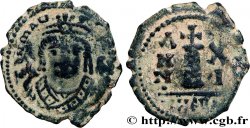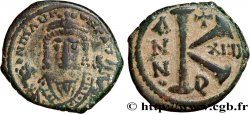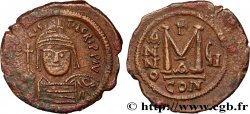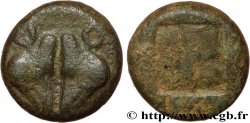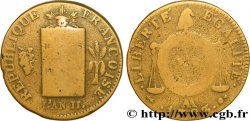Live auction - bby_583156 - MAURICIUS TIBERIUS Solidus
You must signin and be an approved bidder to bid, LOGIN TO BID. Accounts are subject to approval and the approval process takes place within 48 hours. Do not wait until the day a sale closes to register. Clicking on "BID" constitutes acceptance of the terms of use of cgb.fr private live auctions.
Bids must be placed in whole Euro amounts only. The sale will start closing at the time stated on the item description; any bids received at the site after the closing time will not be executed. Transmission times may vary and bids could be rejected if you wait until the last second. For further information check the Live auction FAQ
All winning bids are subject to a 18% buyer’s fee.
All winning bids are subject to a 18% buyer’s fee.
| Estimate : | 900 € |
| Price : | 520 € |
| Maximum bid : | 550 € |
| End of the sale : | 16 June 2020 15:18:01 |
| bidders : | 2 bidders |
Type : Solidus
Date: 583-601
Mint name / Town : Theoupolis (Antioche)
Metal : gold
Millesimal fineness : 1000 ‰
Diameter : 21,5 mm
Orientation dies : 7 h.
Weight : 4,49 g.
Rarity : R1
Officine: 4e
Coments on the condition:
Exemplaire sur un flan large et bien centré. Superbe buste de style fin. Patine de collection
Catalogue references :
Obverse
Obverse legend : D N MAVRC - TIB PP AVI, (M ONCIALE).
Obverse description : Buste casqué, diadémé et cuirassé de Maurice Tibère de face, avec pendilia, tenant de la main droite un globe crucigère.
Obverse translation : “Dominus Noster Mauricius Tiberius Perpetuus Augustus”, (Notre seigneur Maurice Tibère perpétuel auguste).
Reverse
Reverse legend : VICTORI-A AVGG(DELTA)/ -|-// CONOB.
Reverse description : Ange debout de face, nimbé, les ailes déployées, tenant une longue croix de la main droite et un globe crucigère de la main gauche.
Reverse translation : “Victoria Augustorum”, (La Victoire des Augustes).
Commentary
Pendilia aux extrémités bouletées. Diadème perlé. Casque avec plumet. buste massif et large. Attribué par Bellinger dans le DOC. I à l’atelier d’Antioche. Les autres auteurs, Cécile Morrisson, Wolfgang Hahn ou Harlan J. Berk maintiennent une attribution à l’atelier de Constantinople. David Sear suit les conclusions de Bellinger et donne ce type à l’atelier d’Antioche.







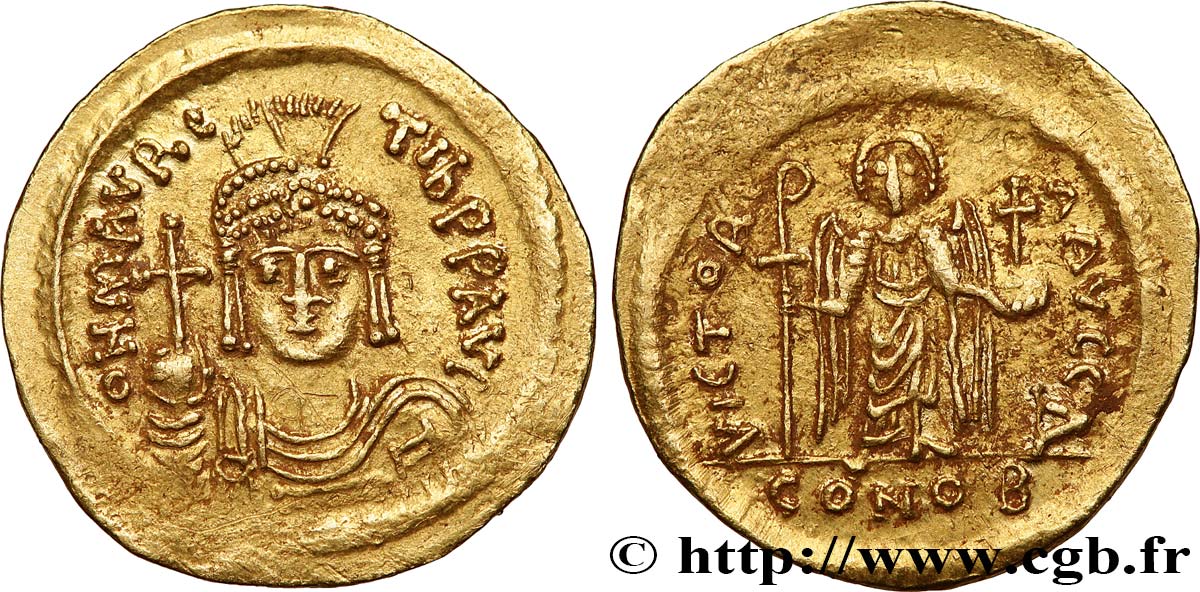
 Report a mistake
Report a mistake Print the page
Print the page Share my selection
Share my selection Ask a question
Ask a question Consign / sell
Consign / sell
 Full data
Full data